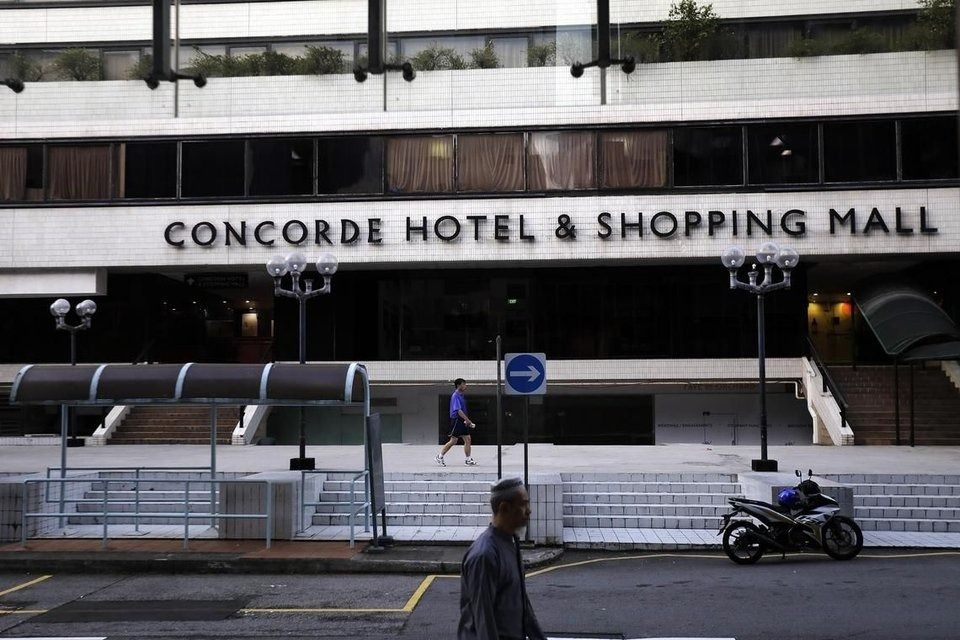
Hong Kong resident Benny Sze makes a beeline to mainland China twice a month for leisure because transport, drinks, meals and hotels all cost far less than at home.
The 36-year-old graphic designer cannot resist splashing out in neighbouring Shenzhen despite having negative perceptions of the mainland after Beijing imposed the national security law on Hong Kong following anti-government protests in 2019.
“Feeling negatively towards the mainland is one thing, but the fact is Shenzhen offers a greater variety of choices at cheaper prices with better service quality than in Hong Kong,” he said. “As a consumer, it’s wise not to oppose the benefits that come with spending money there.
Do you have questions about the biggest topics and trends from around the world? Get the answers with SCMP Knowledge, our new platform of curated content with explainers, FAQs, analyses and infographics brought to you by our award-winning team.
“When a luxury nightclub in Shenzhen sells liquor at less than half the price compared with Hong Kong, the choice is obvious.”
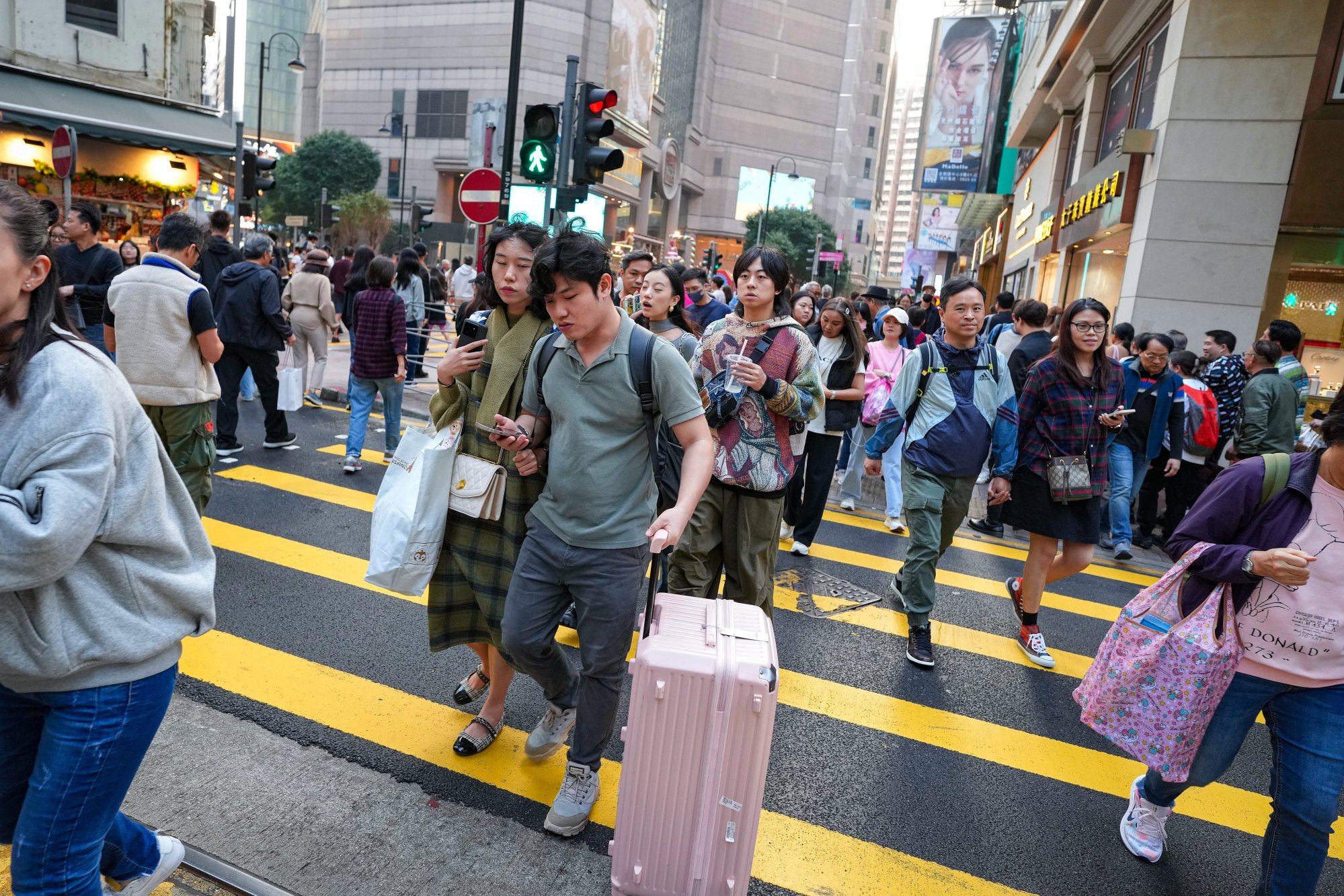
A growing cost-conscious crowd, which includes Sze, has even put aside political differences in favour of spending for leisure across the border following Hong Kong’s full resumption of restriction-free travel with the mainland early last year after the pandemic.
But mainland visitors are not returning to the city as readily, with tourism authorities conceding that “revenge travel” has not materialised as much as expected. They have also noticed mainland travellers’ tastes have changed, from splurging on luxury goods to chasing authentic local experiences.
The imbalance in arrivals and departures recently prompted former chief executive Leung Chun-ying to accuse local tourism officials of being too passive in their efforts to attract mainland tourists.
“A proactive approach would be to facilitate travellers heading south through policies and procedures,” said Leung, a vice-chairman of the nation’s top political advisory body, in a social media post last week.
Hong Kong officials too ‘passive’ in efforts to attract mainland visitors: CY Leung
He said authorities thought Hong Kong was “like a princess who lacks no suitors”, a mentality that had to be abandoned when mainland cities were aggressively coming up with competitive offerings.
Leung added that Guangdong province’s plan to have more border checkpoints open on a 24-hour basis would help in the short term, but Hong Kong needed to “embrace competition” to improve.
Shenzhen residents came to Hong Kong for very different purposes compared with people in Beijing, for example, Leung said.
“We need to know the mainland market a lot better to be able to forecast and plan more accurately than what we do now,” Leung told the Post on Tuesday. “Relative to the importance of the mainland market, we simply do not know enough about it.”
Tourism is one of the city’s four traditional pillar industries along with financial services, trading and logistics, and professional and producer services. Over the years, they have been the driving force of Hong Kong’s economic growth.
Experts have said authorities across the border are taking the initiative to attract tourists with various policies, such as tax rebates in Shenzhen, and encourage spending.
The MTR Corporation, meanwhile, will increase the frequency of high-speed rail services to Futian in Shenzhen this month.
Hong Kong ‘aims to increase flight links to more belt and road countries’
Purse strings over politics
Hongkongers told the Post that politics could be put aside when bargains and quality food were on offer across the border, with travel data over the Christmas period highlighting the challenge facing local businesses relying on both spending from residents and tourists.
According to the Immigration Department, Hongkongers took more than 1.05 million trips out of the city from December 24 to 26, comparable to the 1.08 million figure in 2018.
But visitors, including mainland tourists, made only 360,000 trips into Hong Kong during the three days, 18 per cent less than the 428,000 recorded in the same period in 2018.
The number of visitors in the third quarter of 2023 reached about 10.44 million, about 68 per cent of the figure for the same period in both 2017 and 2018. Mainland visitors accounted for about 75 per cent of the 10.44 million.
A Hong Kong social worker, who only gave his surname, Ng, is among those taking advantage of deals in neighbouring Guangdong province. He said he planned to go to Shenzhen for high-quality hotpot and more affordable shopping this month despite having political beliefs leaning towards “a more liberal system of governance”.
“My political stance doesn’t influence my spending choice,” the 30-year-old said. “I don’t see why we shouldn’t be going to the mainland if we’re confident in what we believe in.
“Not everyone on the mainland supports a dictatorship. Most mainland Chinese are regular people like us.”
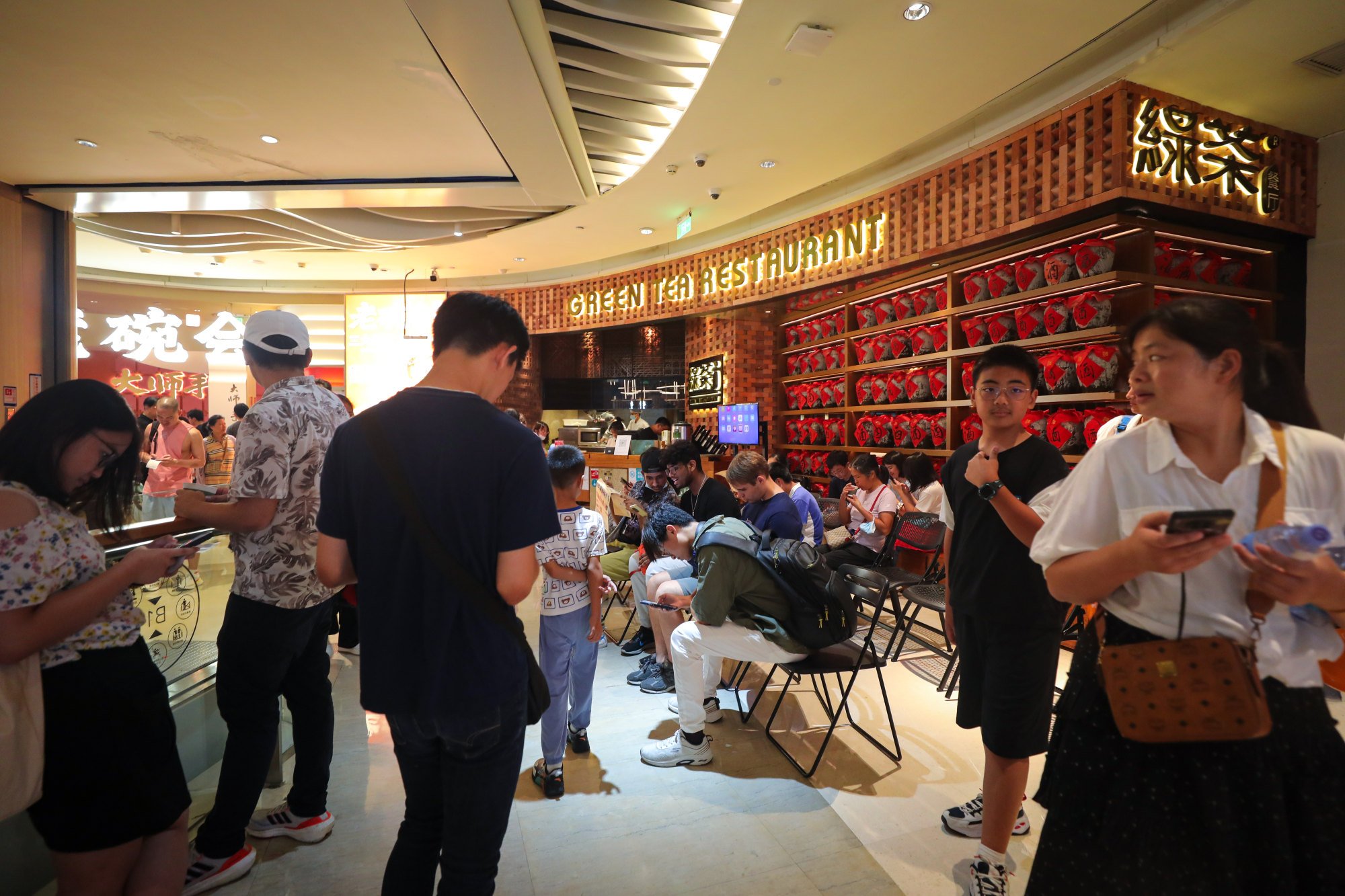
Another Hongkonger, Cecil Hoo Tze-lok, visited Shanghai over Christmas, which is not a public holiday on the mainland, to experience unique attractions at Disneyland.
The 28-year-old trainee solicitor said Shanghai had few festive decorations, although some shops hinted at the holiday by playing festive songs.
Malls had “affordable dining options” such as freshly made shengjian bao and soup buns, whereas “low-end dining” in Hong Kong did not offer food of similar quality, he said.
Chin Chun-wing, chairman of the Hong Kong Bar and Club Association, said his industry suffered a 30 per cent drop in business over the Christmas holidays compared with the year before.
“The economic recovery is slower than expected and customers are inevitably being more cautious with their spending,” he said.
“Christmas is a holiday when bar owners expect to make big profits. We would be lucky if bars did not have to lose money.”
Hong Kong bid to lure more overnight visitors and develop high-quality tourism
A tourism policy blunder?
Sara Leung Fong-yuen, chairwoman of the Hong Kong Tourism Industry Employees General Union, agreed with former chief executive Leung that authorities were not being proactive enough in attracting visitors.
“This is the heartfelt voice of the tourism industry and the reality, not criticism for the sake of criticism,” she said. “The Culture, Sports and Tourism Bureau sounds very fancy with its functions, but I don’t see well-planned integration of culture and sports into tourism.”
She also accused the authorities of taking for granted that visitors would return once borders reopened following three years of Covid-19 restrictions.
“The government seems to be at a loss when it comes to the border reopening, thinking that once Hong Kong’s doors opened, people would automatically be attracted. But the reality is far from that,” she said.
Local authorities had not updated their tourism mindset since introducing a solo traveller scheme in 2003, the union chief said.
The scheme allows people from certain mainland cities to visit Hong Kong without booking group tours.
“Using food and shopping as the sole means of attracting tourists will only harm Hong Kong,” she said. “The world is constantly changing.”
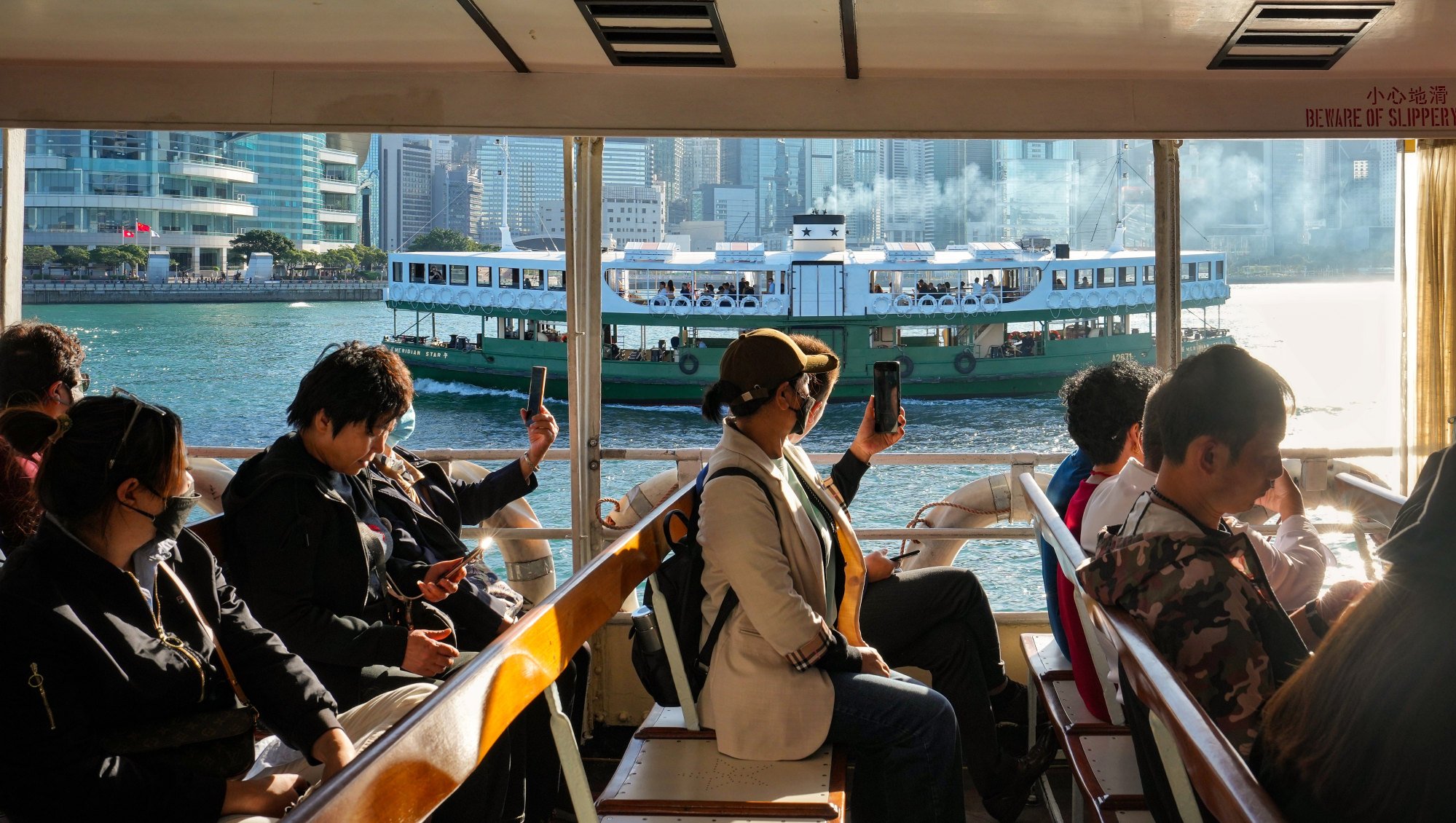
Leung said she had suggested promoting a package of Hong Kong’s core attributes such as its unique blend of Chinese and Western culture, customs and festivals as well as the heritage and architecture of traditional villages and colonial-era buildings.
“By incorporating more diverse elements into tourism, we can attract visitors from around the world,” she said. “However, the government has not addressed this suggestion.”
In a reply to the Post, the bureau – headed by Secretary for Culture, Sports and Tourism Kevin Yeung Yun-hung – said it had been taking the lead and coordinating with other government agencies to roll out policies and measures to develop the sector.
Support would also be provided for hosting international events, conferences and exhibitions, developing the cruise sector and upgrading tourism facilities to attract more “high value-added overnight visitors” to the city, it said.
The bureau said it had been working with provincial and municipal governments on the mainland to develop joint marketing, which included creating a “tourism brand” to encourage regional and international visitors to make multi-destination trips in the Greater Bay Area.
The bay area refers to Beijing’s scheme to integrate Hong Kong, Macau and nine mainland cities into an economic powerhouse.
The government granted the Tourism Board an extra HK$820 million (US$105 million) funding for the 2023-24 financial year, taking the total to HK$1.38 billion. The lion’s share, HK$1.2 billion, will be spent on marketing.
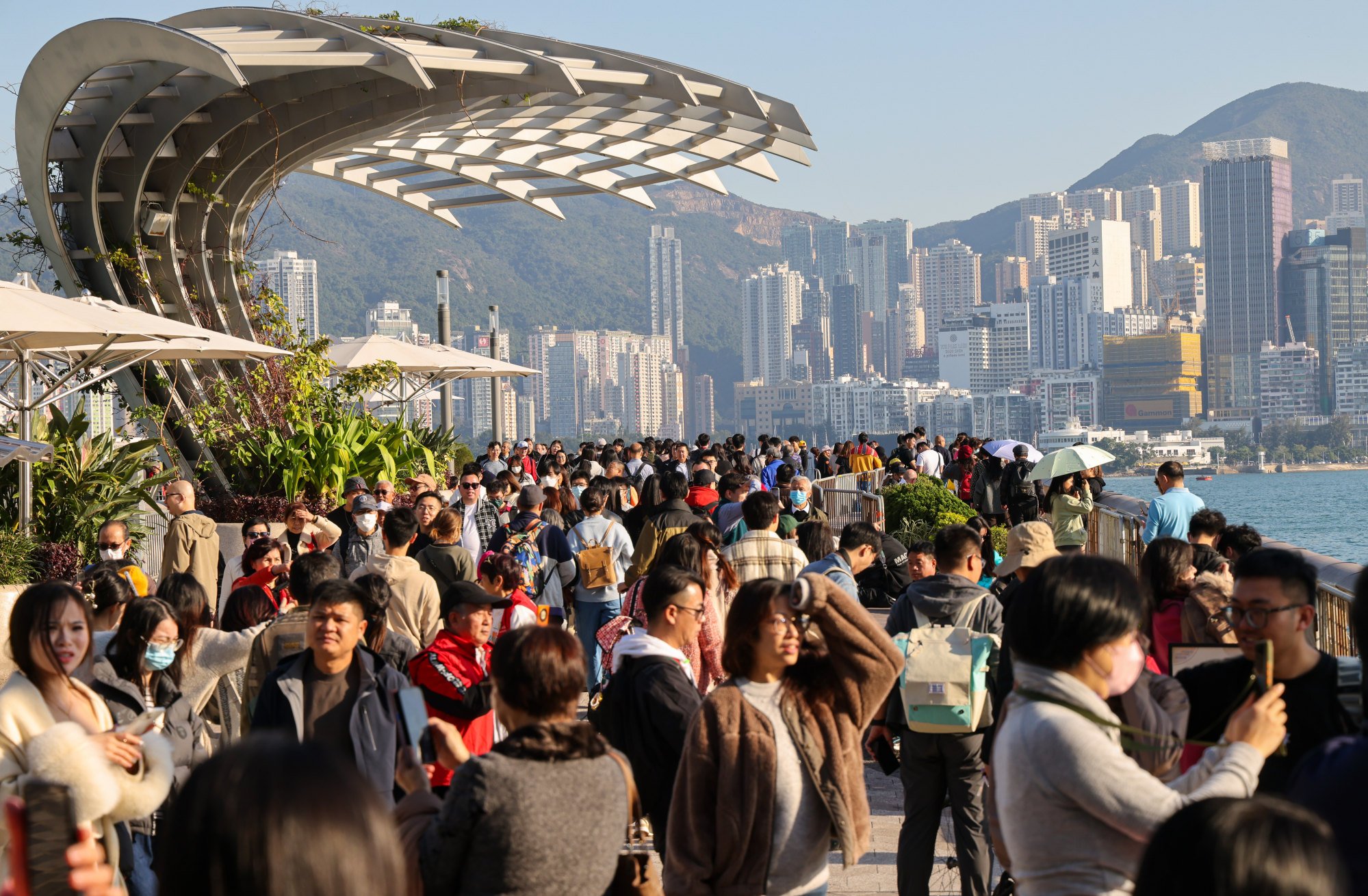
Authorities also launched the “Night Vibes Hong Kong” campaign to boost the evening economy, which included revamping a night market on Temple Street in Jordan.
The board offered visitors vouchers to spend on transport, meals and goods at designated shops as part of a HK$100 million “Hello Hong Kong” campaign that started in February, with coupons redeemable until December 31.
Visitors could also redeem drinks at more than 100 restaurants, bars and hotels across the city.
Hong Kong tourism blueprint to revamp Kai Tak’s role, minister says
‘Learn from the pain’
Lawmaker Doreen Kong Yuk-foon said Hong Kong had to “learn from the pain” and abandon the assumption that tourists would simply arrive and spend large amounts of money as they had done before.
Kong felt the government so far had only proposed fragmented measures or programmes, focusing on easier solutions such as the Night Vibes campaign, and lacked a cohesive policy to effectively boost tourism and spending.
She said having more 24-hour border crossings would allow mainland tourists making a same-day round trip to pass more time in the city, and encourage them to spend more.
The city needed to attract visitors from various countries, not just mainland tourists, to truly be an international city.
Tommy Tam Kwong-shun, managing director of Arrow Travel Agency, said he shared ex-leader Leung’s view. But revamping policies would involve all bureaus, not just the one handling culture, sports and tourism, he said.
The shortage of coach drivers, tour guides and general tourism industry workers needed to be tackled by various bureaus.
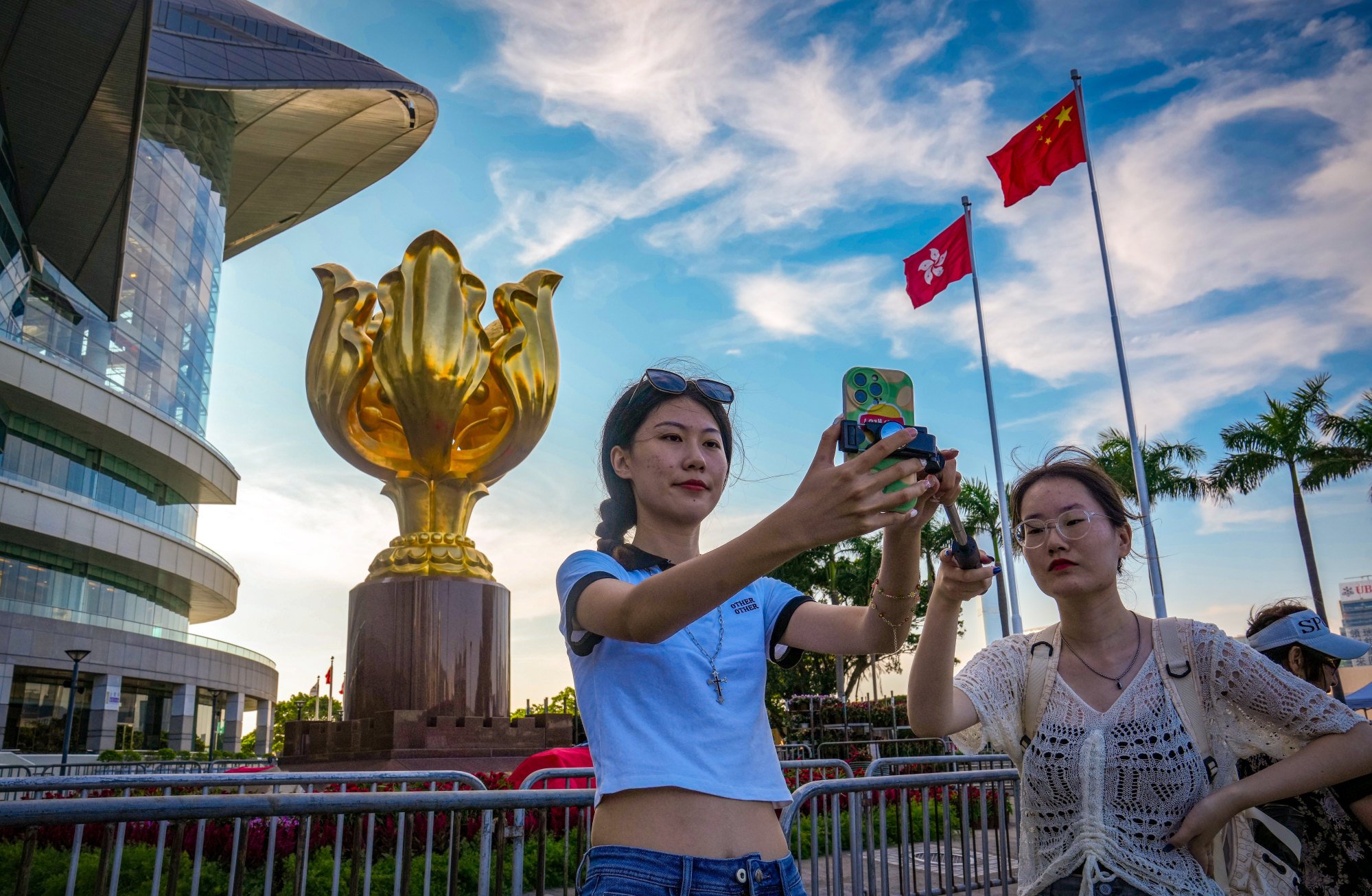
He said the chief executive should appoint the city’s No 2 official, for example, to oversee and coordinate different departments to tackle the issue and work together.
“If you depend just on Kevin Yeung and the Culture, Sports and Tourism Bureau ... it’s not proactive enough,” he said.
Lau Siu-kai, a consultant at semi-official Beijing think tank the Chinese Association of Hong Kong and Macau Studies, said the government needed a holistic solution because negative impressions from Western countries lingered.
“In the short term, Hong Kong still needs to rely on tourists from the mainland to stimulate the economy and restore confidence among local residents, just as the government introduced the solo traveller scheme after the outbreak of the severe acute respiratory disease [in 2003],” he said.
“The government needs to seriously engage with various industries and explore a new holistic approach to attract mainland visitors to Hong Kong.”
Veteran political commentator Sonny Lo Shiu-hing said Leung Chun-ying had made a valid criticism over the city’s efforts to attract mainland tourists.
“The government needs to work with mainland cities by providing more choice for tourists to not only spend time in Hong Kong, but also in Macau and other places that make trips more captivating in light of the bay area integration,” Lo said.
He added the secretary for culture, sports and tourism should be the one taking the initiative given the issues were part of his portfolio.
“You can combine all three things together,” Lo said. “For example, the Hong Kong Sevens is a kind of sport tourism. But the authorities have not done enough to promote cultural and historical tourism compared with Macau.”
Macau offers a wide range of cultural attractions including 30 listed World Heritage sites such as the Ruins of St Paul’s, Mount Fortress and A-Ma Temple.
More than 30 million visitors to visit Hong Kong this year: Tourism Board
Soft power in the spotlight
Gary Ng Cheuk-yan, a senior economist with Natixis Corporate and Investment Bank, said the responsibility for attracting tourists did not solely lie with the Tourism Board.
Ng also compared Hong Kong’s approach with that of Singapore, which he said had a clear strategy for bringing in visitors, such as for concerts, with superstars Taylor Swift and Coldplay already on the calendar for 2024.
South Korea used K-pop soft power to draw in crowds year-round, while Japan also used its soft power beyond simply relying on a weak yen to lure visitors, he noted.
“For the case of Hong Kong, using cultural elements or films or different types of industries, the government can bank on [these] to enrich the experience [for visitors] instead of only [using] shopping malls,” Ng said.
Lily Agonoy, managing director of Jebsen Travel, said the government should focus on soft skills, such as hospitality and service attitudes, to attract visitors.
She pointed to Thailand and Japan, which were known for their hospitality.
“Don’t just focus on the hardware, the infrastructure, you should also look at the soft skills, the people,” she said. “We should train them to have a hospitable attitude.”
Recently, some lawmakers called for service sector workers to say “please”, thank you” and “welcome” more often.
Hong Kong retail sales rise by 5.6% in October, amid continued tourism revival
Simon Wong Kit-lung, chairman of the Quality Tourism Services Association, argued that the city had a culture of efficiency, but not one that was warm towards strangers.
“But that does not mean Hongkongers are rude,” he said. “We still offer help to one another when needed. We just don’t have that culture.”
Chen Yiqing, 23, a university student from Shanghai who spent 2½ days in the city over Christmas, said she felt restaurant owners discriminated against her when ordering food in Mandarin.
“The owner was very indifferent when I ordered in Mandarin,” she said. “But [she] became extremely friendly when two Korean ladies spoke in English when ordering.”
Chen said she believed the unpleasant encounter was an isolated case during her stay, as most Hongkongers she met were “very nice”.
But she said e-payment services should be more widely available after finding herself unable to pay when short of cash on some occasions.
Chen’s experience hints at long-standing pain points, but bigger questions are also on the government’s agenda. Chief Executive John Lee Ka-chiu in October said the city must “face the trend” of more residents heading north, while finance minister Paul Chan Mo-po acknowledged visitors were spending less lavishly than before.
But worries remain over how authorities will build a cohesive plan to steer the city through the changes, efforts which Lawmaker Kong said were long overdue.
“I feel like we are resting on our laurels ... [But] the whole world has indeed changed,” she said. “How can we drive our tourism industry forward if we continue to rely on the model of the 1970s?”
Additional reporting by Denise Tsang and Lo Hoi-ying
More from South China Morning Post:
- Hong Kong tourism officials too ‘passive’ in efforts to attract mainland Chinese visitors, former city leader CY Leung says
- Hong Kong’s retail sales rise by 5.6% in October amid tourism revival, but industry leader worries Christmas spending will suffer as residents head north
- More than 30 million visitors to visit Hong Kong this year, Tourism Board says, but figure less than half record 2018 numbers
For the latest news from the South China Morning Post download our mobile app. Copyright 2024.










